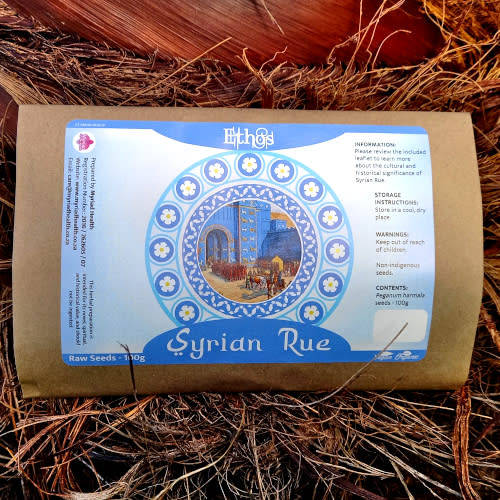





| Main centres: | 1-3 business days |
| Regional areas: | 3-4 business days |
| Remote areas: | 3-5 business days |
Whole Syrian Rue Seeds
Information Pamphlet
The Plant:
Syrian Rue (Peganum harmala) is a perennial plant which dies back each winter only to grow back from its strong roots each spring. It hails from the Mediterranean and Middle-East, where it survives in climates which range from sweltering desert heat to freezing winters with a dusting of snow.
The History:
Around 60 CE Syrian Rue was described by Dioscorides in his botanical De materia medica. According to him: wild rue mixed with honey, wine, chicken gall, saffron and fennel juice is useful for weak vision. Dioscorides equated Syrian Rue with moly, the mythic herb that Hermes brought to Odysseus. It protected him from the spell of Circe, a witch who had transformed his comrades into swine.
Dioscorides already noted that the plant was used to ward off the evil eye. Another folk name of Syrian Rue was Besasa or plant of Bes. Bes is an ancient Egyptian dwarf-god that protects people against all kinds of evil. Small statues of Bes were fumigated with Syrian Rue seeds. Up until the present day, the burning of harmala seeds remains a popular custom in the Near East and North Africa.
Syrian Rue is further known as an aphrodisiac. Pregnant women, however, shouldn't take it as it also has abortifacient effects. The seeds induce contraction of the muscles in the uterus. For this reason, they were also applied to induce abortions, to induce labour, and to promote menstruation.